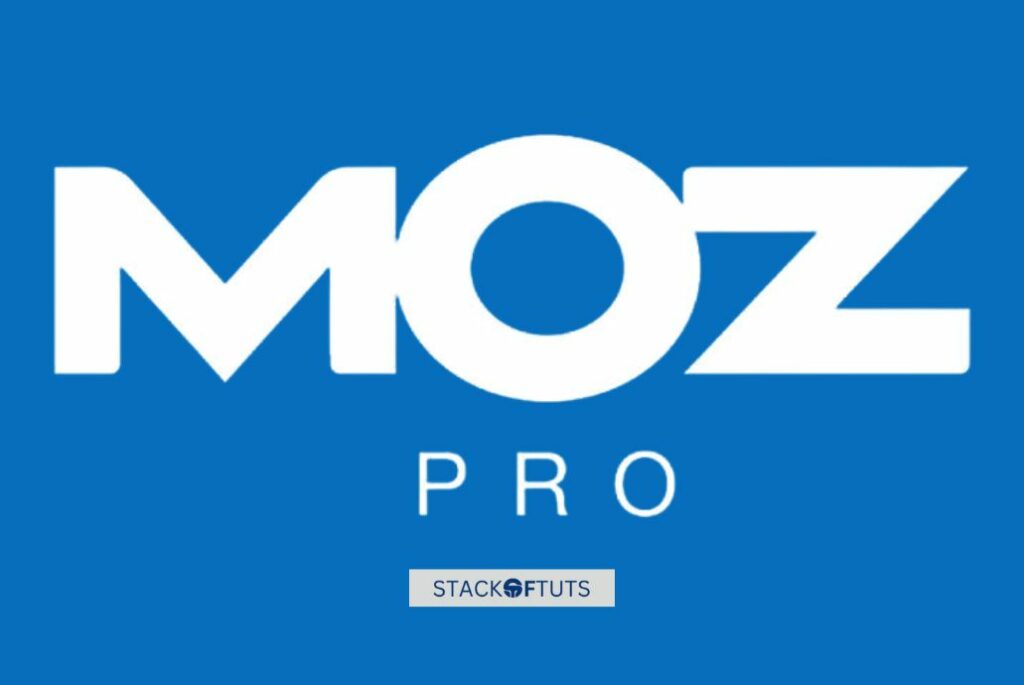
In the dynamic landscape of digital marketing, the effectiveness of your SEO strategy largely depends on the tools you use. Among these, keyword research tools are indispensable. They help uncover the phrases your audience is searching for, enabling you to tailor your content to meet their needs. This guide explores the 25 Best Free Keyword Research Tools for 2024, providing insights to help you navigate the many options and find the tools that best suit your marketing goals.
What are keyword research tools?
Keyword research tools are software that helps SEO professionals and content marketers discover words and phrases users type into search engines. They provide data on things like search volume, competition, and related queries.
The Importance of Keyword Research for SEO
Keyword research is crucial for SEO as it provides insights into the queries your target audience is searching for. It helps in crafting content that aligns with user intent, improving your website’s visibility and ranking on search engines.
Related Post: How to write content with keywords?
List of 25 Best Free Keyword Research Tools
Here’s a detailed overview of each keyword research tool, highlighting their key features and benefits:
1. Google Keyword Planner

Google Keyword Planner is an essential tool for anyone involved in SEO and digital marketing. It is primarily designed for advertisers to create Google Ads campaigns, but it’s equally valuable for keyword research. This tool provides insights directly from Google’s data, including search volume, competition level, and cost-per-click estimates. The Google Keyword Planner is particularly useful for identifying high-volume keywords and understanding seasonal trends in search behaviour.
2. Ubersuggest

UberSuggest is a versatile and user-friendly keyword research tool offering many features. It provides keyword suggestions, search volume data, and insights into the level of competition for specific keywords. What sets Ubersuggest apart is its ability to offer a list of content ideas and top-ranking pages for each keyword, making it a great tool for content planning and competitive analysis.
3. AnswerThePublic

AnswerThePublic is unique in its approach to keyword research. It visualises search questions and provides a range of autocomplete suggestions based on the seed keyword. This tool is exceptionally useful for content creators looking to address specific questions their audience is asking. AnswerThePublic helps in identifying long-tail keywords and generating ideas for blog posts, FAQs, and other content formats.
4. KWFinder

KWFinder is a powerful tool for finding long-tail keywords with low SEO difficulty. It’s known for its user-friendly interface and accurate search volume data. KWFinder also provides insights into how a specific keyword is performing in different locations and languages, which is particularly beneficial for local SEO strategies and global campaigns.
5. Soovle

Soovle offers a unique take on keyword research by pulling autocomplete suggestions from various sources like Google, YouTube, Bing, Amazon, and more. This makes Soovle an excellent tool for uncovering a wide range of keyword ideas across different platforms and understanding the broader search landscape.
6. Keyword Eye

Keyword Eye is a visual tool that presents keyword data in an easy-to-understand format. It uses colour coding and size variations to indicate keyword competitiveness and search volume. This tool is particularly helpful for quickly identifying promising keywords and understanding user search patterns.
7. eRank

eRank is a tool geared towards Etsy sellers, providing keyword research and analytics specifically for the Etsy marketplace. It offers features like keyword suggestions, search volume, and competition data, which are crucial for sellers looking to optimise their Etsy listings and improve their shop’s visibility.
8. Wordtracker

Wordtracker is a robust keyword research tool that offers extensive data on search terms, including related keywords, competition scores, and search volumes. It’s particularly useful for uncovering niche keywords and understanding the competitive landscape for specific search terms.
9. Jaaxy

Jaaxy is designed for affiliate marketers, bloggers, and online business owners. It provides keyword suggestions, search volume, competition data, and the potential profitability of keywords. Jaaxy also offers unique features like the ability to find unexploited niches and analyse your competition’s SEO strategy.
10. Keyword Snatcher

Keyword Snatcher is a tool designed to unearth a vast array of keywords. It’s known for pulling thousands of keyword ideas from major search engines like Google, Bing, and Yahoo. One of its key features is that it can find long-tail keywords, which other tools frequently overlook. This makes it particularly useful for identifying niche topics and less competitive keywords, which are essential for crafting targeted SEO strategies.
11. SEMrush

SEMrush stands out as a comprehensive SEO toolkit. It offers extensive features such as keyword research, site audits, competitor analysis, and backlink tracking. The strength of SEMrush lies in its competitive intelligence capabilities, allowing users to analyse their competitors’ strategies and adjust their own accordingly. Its robust analytics provide insights into organic search, paid advertising, and content marketing tactics.
12. Ahrefs

Ahrefs is renowned for its advanced backlink analysis tool. It helps users track backlinks, referring domains, and the quality of inbound links. Additionally, Ahrefs offers tools for keyword research, content analysis, and rank tracking. Its Site Audit feature is particularly noteworthy, providing comprehensive insights into website health and performance issues.
13. Moz Pro

Moz Pro offers a suite of tools covering aspects like keyword research, link building, site audits, and page optimization. Its Keyword Explorer and Link Explorer are highly acclaimed for their depth and accuracy. Moz Pro is also celebrated for its user-friendly interface and the MozBar, a browser extension that provides instant metrics about webpages and SERPs.
14. Serpstat

Serpstat is a multi-faceted tool that covers SEO, PPC, and content marketing. It offers keyword research, competitor analysis, and site auditing capabilities. The tool’s distinguishing feature is its SERP analysis functionality, which provides detailed insights into search engine results pages, helping users understand their SEO landscape
15. Mangools

Mangools is a user-friendly SEO software suite that includes tools like KWFinder for keyword research, SERPChecker for SERP analysis, and LinkMiner for backlink analysis. It’s known for its ease of use and visually appealing interface, making it a great choice for SEO beginners and professionals.
16. GrowthBar

GrowthBar is a Chrome extension designed for marketers and bloggers. It offers features like keyword research, competitive analysis, and SEO metrics directly in the search results. Its standout feature is the ease of accessing data while performing regular searches, which helps in quickly gaining insights without switching between tools.
17. Keyword Surfer

Keyword Surfer is another Chrome extension that provides keyword data directly in Google search results. It’s known for showing search volumes, CPC data, and related searches. The real-time content guidelines feature, which offers suggestions for optimising web content, makes it a handy tool for content creators.
18. SEO Review Tools

SEO Review Tools comprises a collection of straightforward SEO tools. It includes utilities for keyword research, backlink checking, and content optimization. Its simplicity and direct approach to providing SEO data make it a go-to resource for quick insights.
19. Keyword Tool

Keyword Tool is an incredibly versatile and user-friendly platform. It uses Google Autocomplete data to generate a comprehensive list of keywords based on your initial search term. This tool is particularly effective for uncovering long-tail keywords, which are often overlooked but can be highly valuable in an SEO strategy. Additionally, it offers insights into search volumes, trends, and competition levels. Its ability to filter by language and location makes it a go-to tool for both local and international SEO campaigns.
20. Kparser

Kparser is a powerful keyword research tool that stands out for its ability to generate a diverse range of keyword suggestions. It’s particularly adept at finding long-tail keywords and phrases that your competitors might not be targeting. Kparser offers detailed information about search volume, CPC, and competition. Its user-friendly interface and advanced filtering options make it easy to tailor your search to specific industries, countries, or search engines.
21. eBay Keyword Tool

The eBay Keyword Tool is specialised for those who operate in the e-commerce space, specifically on eBay. It helps in identifying popular keywords that shoppers use on eBay, providing invaluable insight for sellers aiming to optimise their product listings. This tool is essential for e-commerce SEO, allowing sellers to understand buyer behaviour, discover high-demand products, and craft listings that are more likely to appear in eBay’s search results.
22. Google Search Console

Google Search Console is a must-have tool for any SEO professional. It not only provides data on the performance of your website in Google search results but also offers insights into impressions, clicks, and the average position of your keywords. One of its most valuable features is the ability to see which queries bring users to your site and how well you rank for those queries. This tool is crucial for monitoring your site’s health, optimising your content, and troubleshooting potential issues.
23. Google Trends

Google Trends is a unique tool that allows you to see the popularity of search queries over time across various regions and languages. It’s incredibly useful for identifying seasonal trends, emerging topics, and changes in search behaviour. By comparing different keywords, you can gauge their relative popularity and use this information to guide your content strategy, ensuring your topics are both relevant and timely.
24. Google Ads Keyword Planner

Part of the Google Ads suite, the Google Ads Keyword Planner is primarily designed for advertisers but is also a valuable resource for SEO. It provides detailed keyword data, including search volumes, competition, and bid estimates, which are essential for both paid and organic search strategies. Its ability to generate new keyword ideas based on seed keywords, combined with its forecasting capabilities, makes it a powerful tool for planning both SEO and PPC campaigns.
25. Google Analytics

Google Analytics is an indispensable tool for understanding your website’s audience. It provides in-depth insights into user behaviour, traffic sources, and engagement metrics. While not a traditional keyword research tool, it’s invaluable for understanding the impact of your keywords on user behaviour and conversions. Integrating Google Analytics with Google Search Console can give you a comprehensive view of how your content is performing in terms of attracting and engaging users.
Recommendations for Choosing the Right Tool
Selecting the ideal keyword research tool hinges on your specific needs and goals. Here are some key considerations to guide your choice:
- Purpose and Scope: Determine what you primarily need the tool for. If it’s for SEO, focus on tools that offer detailed search volume and competition data. For content marketing, look for tools that provide content ideas and question-based keywords.
- Ease of Use: Choose a tool that aligns with your expertise level. Beginners may prefer a more user-friendly interface, while advanced users might opt for tools with more complex analytics.
- Data Accuracy: The reliability of the data provided is crucial. Opt for tools known for their accuracy and up-to-date information.
- Integration Capabilities: Consider how well the tool integrates with other platforms and tools you are currently using, such as Google Analytics or your content management system.
- Budget: While there are many free tools, some advanced features might be behind a paywall. Assess if the premium features are worth the investment for your SEO strategy.
- Feature Set: Look for tools that offer a range of features like keyword suggestions, SERP analysis, trend analysis, and competitor insights. The more comprehensive the tool, the better your ability to craft a robust SEO strategy will be.
- Customer Support and Resources: Good customer support and a wealth of educational resources can be invaluable, especially when you’re starting or when you encounter issues.
FAQs
Ubersuggest and Google Keyword Planner are great choices for beginners due to their user-friendly interfaces and comprehensive data.
Yes, the eBay Keyword Tool is specifically tailored for e-commerce, especially for sellers on the eBay platform.
Regularly, market trends and search behaviours are constantly evolving. It’s advisable to do it at least quarterly.
Tools like KWFinder and Keyword Tool are excellent for discovering long-tail keywords, which can be highly beneficial for niche targeting.
Conclusion
In summary, the right keyword research tool can significantly enhance your SEO and content marketing efforts. Each tool, with its unique features and capabilities, offers different advantages. By understanding and leveraging the strengths of these tools, you can gain valuable insights into user behaviour, improve your website’s search engine rankings, and create content that resonates with your audience. Remember, the effectiveness of your digital marketing strategy is profoundly influenced by your choice of tools, so choose wisely among these 25 best free keyword research tools to stay ahead in 2024.
Thanks!